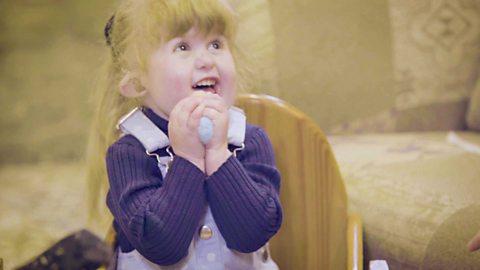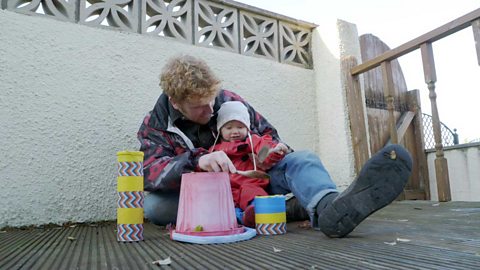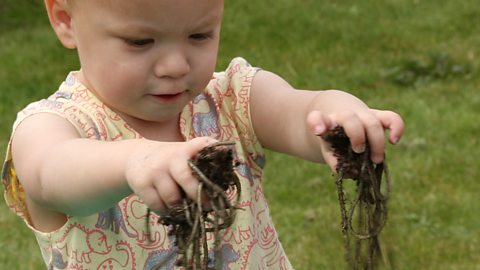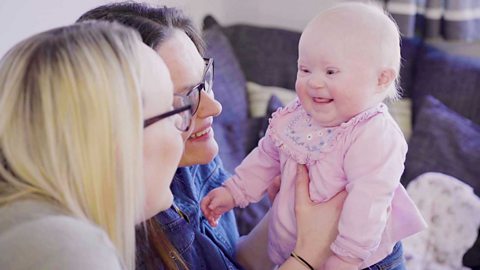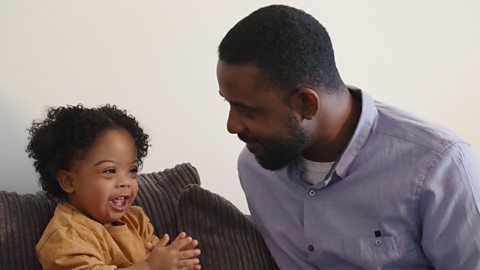Alys Mathers is a Highly Specialist Speech and Language Therapist and works with children who have a wide range of speech, language and communication needs.
Here she talks about how you can support your child's speech and language development if they have a visual impairmentãÎ
Babies and children learn using their five senses ã they look, listen, touch, taste, and smell, and take it all in. When theyãre learning to communicate, they link the words they hear to information they get from their senses. So, how can we help children when one of their senses canãt be used to learn to talk?
Many children with visual impairment go on to develop communication skills without much extra help, using the information from their other senses to learn to talk.
And there are lots of ways you can support their speech and language development, as well as helping them communicate with you. You know your childãs unique needs and interests, so are the best person to ãbe their eyesã and help them on their way to confident talking for learning and life.
By talking about what you can see, and giving them experiences which use their other senses, you are helping your child grow and develop.
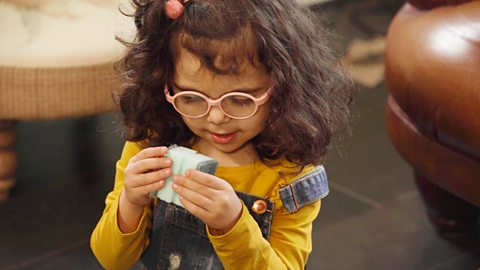
Simple changes you can make
Language learning starts at home through daily routines and play. Your baby or child will find it easier to understand you, and learn to talk, if you make some simple changes.
- Get down to their level so they can hear your voice clearly and know itãs your sounds they should listen to.
- Turn off background noise, like the TV or radio, to help your child concentrate on your voice.
- Say their name to show them youãre about to start talking to them. Some children might need a gentle touch to focus their attention before you start talking.
- Use your voice to show how youãre feeling, as your child may not be able to see your face and gestures clearly.
- Talk about what youãre doing, using short, simple sentences. For example, you might say ãIãm drinking teaã before taking a drink, to help your child link the drinking (slurping!) sounds they can hear with the word ãdrinkingã, and with your action if they can see this.
- Tell your child if someone new comes into the room ã ãHi Ben!ã This is particularly important with people they donãt know so well, as it helps them link voices to peopleãs names.
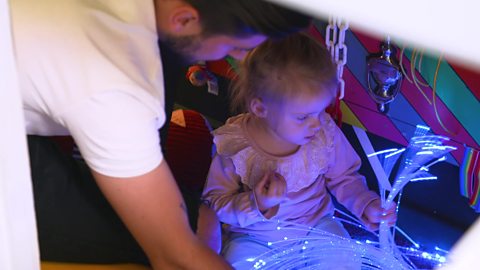
Fun games you can play at home
What may feel like fun and games to your child, can also be a great chance for multi-sensory language learning.
- Have fun playing with sounds, such as raspberries. Your baby will enjoy the vibration of raspberries on their skin, and this encourages them to play with sounds themselves.
- Songs and rhymes build babies and childrenãs awareness of sounds in words. Don't miss out on the actions, even if youãre not sure your child can see them. Instead you could make the actions and signs bigger, or put your hands over theirs and show them the hand movements to make. You could also try other actions your child can feel, such as bouncing them on your lap or holding their hands and rowing back and forth in Row, Row, Row Your Boat.
- Encourage your child to use their other senses by exploring textures during activities. For example, if you are cooking together, talk about how the ingredients feel (soft, squishy, wet), smell and taste.
- Feeling creative? Try making your own sensory space like Jade and Stevie.
- Books are more than pictures and words. Make up your own sound effects to the story (creaking doors, the 'woosh' of a rocket), or find toys or household objects from the story. For example, if youãre reading Julia Donaldsonãs Stick Man, you could find a stick for your child to hold and play with while they're listening. Some libraries have story sacks you can borrow, which have a book, CD with sound effects, and toys linked to the story.
Activities when you're out and about
Go on an adventure outside, and youãll find lots of opportunities to keep on using all the senses and boost your childãs communication skills.
- Go on a listening walk, talking about everything you can hear. Your child may be able to hear the sounds in the world around them, but not spot exactly where theyãre coming from. So if you pass a building site and hear bangingãÎ turn them towards the direction of the noise, and explain what it is.
- You could go on a treasure hunt to find the nicest ã and the nastiest ã smell, and have fun going ãurghh!ã when you find a nasty smell.
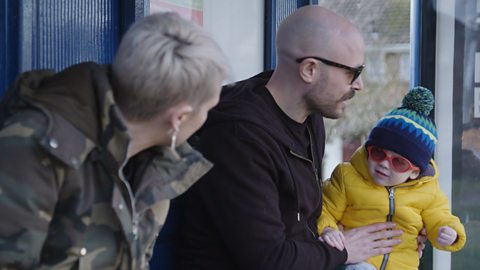
Where to find help
Your child's eyesight develops gradually with age ã the world to a newborn baby will be blurred. If you are concerned about your childãs vision as they get older, speak to your GP or health visitor. Eye tests can be carried out even with , and are recommended before children start school.
If you find your child has a visual impairment, there are lots of organisations out there providing extra information, advice and support. and the are good places to start. Gracieãs mum Kazmin also recommends finding a support group, either locally or on social media.
The best thing you can do to help your child is to spend time learning about their individual strengths and needs, then use their skills and interests to help them learn. With your help, they can learn to talk, learn all about the world around them, and you can all have fun at the same time.

